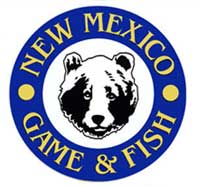
SANTA FE, NM –-(Ammoland.com)- The New Mexico Department of Game and Fish has scheduled statewide Habitat Stamp Citizens Advisory Committee meetings for 2014. The committee will prioritize habitat improvement projects for 2015 and 2016.
The public is welcome and encouraged to attend meetings:
- Southeast: 10 a.m. April 5, U.S. Forest Service office, 901 Mechem Drive, Ruidoso.
- Central: 1 p.m. April 8, BLM office, 435 Montano Road NE, Albuquerque.
- Northeast: 1 p.m. April 10, BLM office, 226 Cruz Alta Road, Taos.
- Northwest: 1 p.m. April 14, U.S. Forest Service office (in the old Rio Vista Elementary School building), 1100 N. Rio Vista, Bloomfield.
- Southwest: 9 a.m. May 3, BLM office, 1800 Marquess St., Las Cruces.
The Habitat Stamp Program has an annual budget of $740,000 supported by hunters and anglers, who must purchase a $5 Habitat Stamp each year to participate in their sports on Bureau of Land Management or U.S. Forest Service lands.
The Habitat Stamp Program has improved more than 804,000 acres of habitat, enhanced more than 11,000 acres of riparian habitat, built 766 places for wildlife to obtain water, completed 710 wildlife population and habitat surveys, completed 17 wildlife transplants (bison, pronghorn, and turkey), improved 87 fishing areas, maintained previously built structures more than 9,000 times, installed 805 erosion control structures, reduced human impacts on wildlife, improved enjoyment of wildlife, and much more.
The program was initiated on an experimental basis on the Valle Vidal Division of the Carson National Forest, with first projects being completed in 1986. With success, progressively, areas were included in the program jurisdiction that culminated with statewide implementation in 1991.
In the 28-year life of the program, more than $42 million has been spent on 2,227 wildlife habitat projects. Funding included 18.6 million from the Habitat Stamp Program and $20.9 million in matching federal aid money for planning, fiscal tracking, National Environmental Policy Act documenting, and obtaining archeological/cultural clearances. Other organizational contributions have contributed $2.9 million in time and cash since 1999.
Since its inception, citizens have been involved in every aspect of the program, advising which habitats are most in need of improvement. Appointed by the State Game Commission, citizens representing sporting, environmental and public-land permittee interests meet each spring to prioritize local habitat projects.
For more information about the Habitat Stamp Program, please contact Dale Hall, (505) 222-4725.
